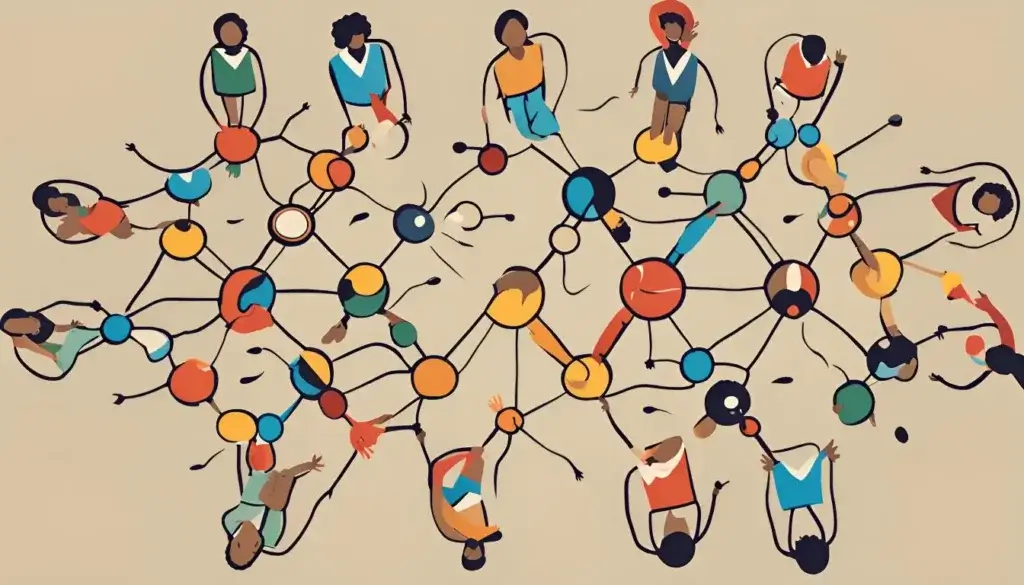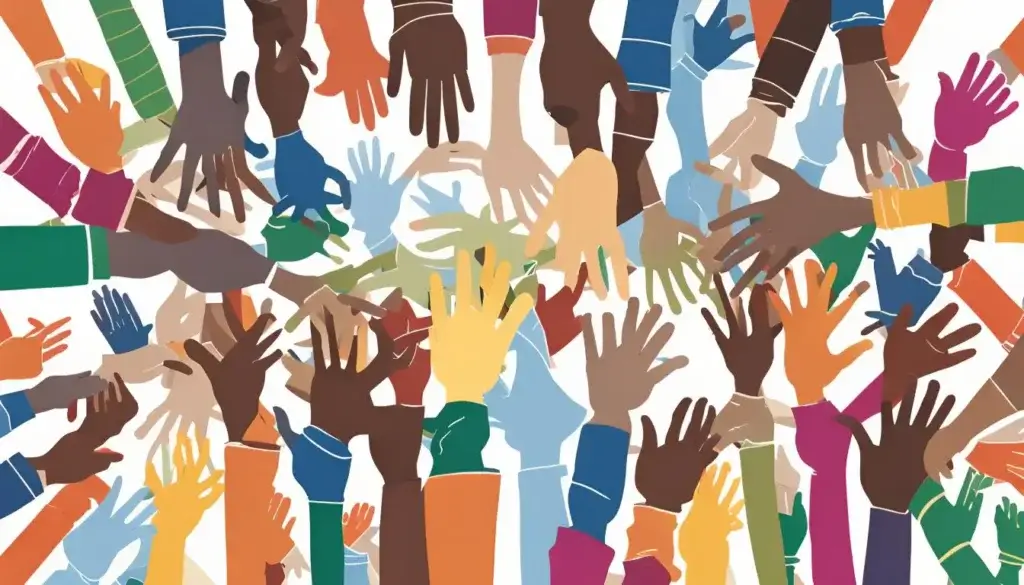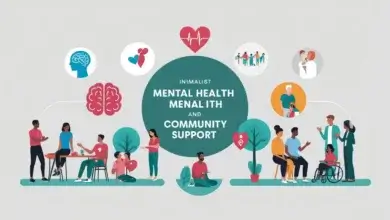
The Profound Impact of Social Connections on 1 Mental Health
Table of Contents
Introduction
We live in a digital world; still, ignoring the ultimate importance of having social connections in our life is, in essence, compromising with our mental as well as physical health. The paper elaborates on how immense benefits can be derived from social connections and severe negative impacts of loneliness and equips one with ten valuable strategies to develop and nurture fruitful relationships.


Brain Behind Social Connections
Evolutionary Perspective
Humans are social creatures. Evolutionarily, social bonds have been imperative for survival. Our ancestors required groups for protection, food, and other needs. That requirement for social bonding is still buried deep within our psyche and continues to impact our physical and mental health.
Social Brain Hypothesis:
It is a theory that firmly specifies that the human brain grew to manage complex social relationships. As group size increased, there was an enhanced cognitive demand that finally caused the evolution of larger brains.
Neurochemical Influence:
Social activities stimulate the release of neurotransmitters, namely oxytocin and dopamine, which are believed to induce feelings of joy and attachment.
Psychological Theories
Several theories within the field of psychology demonstrate the requirement for social relations:
Maslow’s Hierarchy of Needs: Maslow positions social needs in the intermediate order of his pyramid. This placing points out the fulfilment of such needs following basic physiological and safety needs having been satisfied.
Attachment Theory:
This theory describes the subliminal role of early relationships in shaping the backdrop for our capacity to form good, healthy adult relationships.
Social Support Theory:
Social support is crucial in coping with stress and adversity. Emotional, instrumental, informational, and appraisal support are all dimensions of social support.
The Consequences of Loneliness
Mental Health Consequences
The mental health impact of loneliness is acutely felt by individuals as :
Increased Risk of Depression: It is a major risk factor for depression and can increase feelings of sadness, hopelessness, and worthlessness.
Anxiety and Stress: Chronic loneliness is invariably linked to high anxiety and stress and thereby affects mental health.
Suicidal Thoughts: Prolonged loneliness can heighten the risk of inspirational suicide and false suicide attempts.
Physical Health Consequences
Loneliness is not an issue that affects only mental health; it has deep consequences for physical health:
Cardiovascular Disease: Feeling lonely increases the potential risk of heart diseases and blood pressure.
Lower Immunity: Isolation can hamper one’s immunity, making individuals vulnerable to falling off illnesses.
Mortality Risk: The researches made proved that loneliness can heighten the chances of death untimely, which can be compared to smoking or obesity.
Types of Social Support
Emotional Support
Emotional support includes expressions for empathy, love, trust, and care. Such support is particularly needed at times of stress or where there has been emotional upset.
Examples: Listening to a friend, comforting after loss, empathizing.
Benefits: It decreases stress, improves the mood, and gives a sense of belongingness and security.
Instrumental Support
Instrumental support involves the provision of tangible aid and services that directly help a person in need.
Examples: Financial aid, chore help, rides. Benefits: Practical support may reduce burdens in these areas and increase well-being. Informational Support Informational support includes guidance, advice, and facts that a person can use to deal with problems.
Examples: Stress management advice, mental health resources, constructive feedback.
Benefits: Informational support empowers individuals to make enlightened decisions to better their circumstance.
Appraisal Support
Appraisal support involves constructive feedback and affirmation, assistance in evaluating one’s situation, and enhancement of self-esteem.
Examples: Positive encouragement, aiding a person to recognize their strengths, constructive criticism.
Benefits: This support can enhance the person’s confidence and motivation.
Social Network Building and Maintenance Strategies
New Relationship Building
Making new social relationships can be challenging but rewarding. Some of the following strategies can be of help:
Join Clubs and Groups: This will expose you to others with similar activities, sports teams, or hobby groups.
Volunteer: Always turn up for any kind of volunteer service that interests you, as this will unite you with other people having interests similar to yours.
Attend Social Events: Attend community events, parties, or gatherings. This might increase the need to socialize.
Nurturing Existing Relationships
Long-term well-being requires the maintenance and cultivation of relationships already formed:
Stay Connected: This can be done by routinely calling, text messages, or sharing on social media.
Spend Quality Time: Make sure to set time to spend with loved ones and in activities where everybody can enjoy it together.
Show Support: Give emotional, instrumental and informational support to your loved ones in need.
Overcoming Barriers to Social Connectedness
Though the following difficulties exist for social connectedness, ways can be found to overcome them:
Social Anxiety: Gradually facing the situations, seeking professional help, and mindfulness are a few things which can help in dealing with social anxiety.
Time Constraint: Fit in time to socialize. Make it a ritual or part of your daily routine to fit it in.
Geographical Distance: The bridges across geographical distances may be possible through the use of technology in keeping up with friends living far away.
How Technology Helps in Social Connections
Advantages of Technology
Technology has completely changed the way we connect with people:
Social Media: Through platforms such as Facebook, Instagram, and Twitter, one keeps in touch with friends and family, no matter where life takes them geographically.
Video Calls: Through services such as Zoom, Skype, and FaceTime, there are opportunities for face-to-face interactions that bring people closer.
Online Communities: Forums, support groups, and interest-based communities online afford a chance for connecting with like-minded people.
Potential Pitfalls
While technology holds many benefits, it also has a few potential pitfalls:
Shallow Connections: Online interactions can sometimes lack the depth and authenticity of face-to-face interactions.
Cyberbullying: Negative interactions and cyberbullying can harm mental health.
Screen Time: Excessive screen time can detract from in-person interactions and contribute to feelings of loneliness.
Promoting Social Connections in Communities
Community Initiatives
Community initiatives can play a major role in promoting social connections:
Community Centers: The creation of community centers where people can come together to interact and participate in countless activities can foster social bonding.
Events and Festivals: Community events, festivals, and gatherings allow people to get together and offer scope for social interaction.
Support Groups: Hosting support groups on various needs and interests assists in giving the people an opportunity to meet and support each other.
Workplace Strategies
Workplaces can also promote social connections:
Team Building Activities: Arrange for team-building activities and events that bind coworkers together.
Flexible Work Arrangements: Offer flexible work arrangements if possible to facilitate employees in balancing work and being socially active.
Mental Health Support: Provide resources for mental health and support systems to instill a feeling of being cared for and connected in the workplace.
Inspirational Stories of Social Connections
Real-Life Examples
A few examples of real life, shared with others, will inspire and enthuse them about the power of social connections:
Community Support: Such stories as communities rallying around to help people in distress serve to emphasize the need to cultivate social bonds.
Friendship and Recovery: Any personal account of how strong friendships have helped a person to overcome adversity will underline the value of social connections.
Conclusion
Social relationships are very important for good mental and physical health. They serve to provide emotional support, alleviate stress, and give a person a sense of belonging and purpose. As the digital age scales up, it becomes more important that these meaningful relationships are cultivated. Good social ties have the potential to improve life quality and make society more bonded and supportive.
Extra sources :



